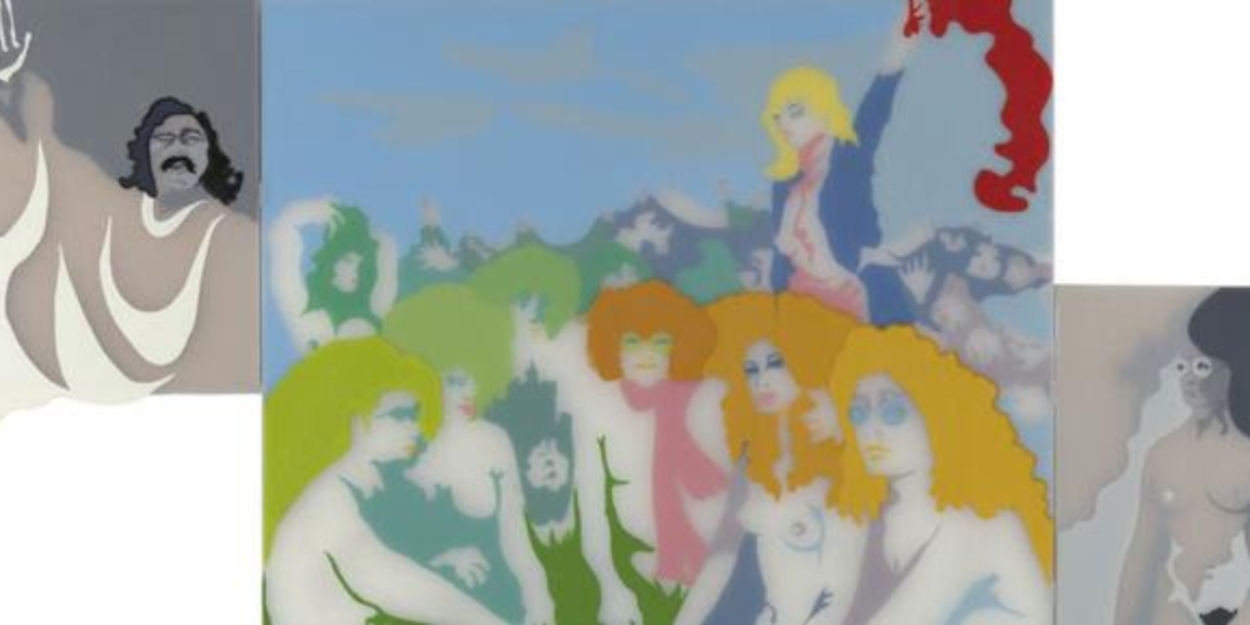LOVE IS LOUDER Exhibition is Now at Bozar
The exhibit runs to 5 January 2025.

From 12 October 2024 to 5 January 2025, the Love is Louder exhibition at Bozar (Centre for Fine Arts of Brussels) explores the many facets of love, its tensions, and its various forms.
Navigating between the personal and the political, the exhibition zooms in on three dimensions of love: romantic love, kinship and friendship, and love in a broader social context. In times of increasing polarization, the exhibition focuses on what connects us.
From the Summer of Love of 1967 to today, the exhibition will show how in the last 60 years we have moved beyond the image of the traditional couple or the nuclear family, how friendships shape us and what it means to put love at the heart of society. The exhibition shows over 120 works of 80 national and International Artists in a wide range of media such as painting, sculpture, video, film and multimedia installations.
Zoë Gray, Director of Exhibitions at Bozar: “Given the bleak state of the world at present – as so many brutal wars rage around the world, as the future looks so uncertain – I thought we needed to send a positive signal, to choose a theme that has always motivated people, not least artists. For, as Matisse asked in 1954, “is not love the origin of all creation?”
The exhibition takes a kaleidoscopic view of love in all its complexity, through the eyes of 80 artists. In times of growing violence, uncertainty and polarisation, it is a call to “Make love, not war,” an exhortation to focus on that which can bring us together. Its title – “Love is Louder” - is a phrase taken from a work by Sam Durant. It asks the question: louder than what? Zoë Gray adds: “The answer can be different for everybody. Louder than war? Louder than loss? It is up to the audience to decide.”
The exhibition focuses exclusively on the love between human beings. Moving between the personal and the political, the exhibition is structured around three chapters, which explore expanding degrees of love: intimacy and romance; kinship and friendship; and community and solidarity. Without following a chronological order, the exhibition presents works made during the last six decades, allowing us to see how discussions about love have evolved over time.
“The decision to begin the scope of the exhibition with the birth of the hippie movement was also to underscore the revolutionary potential of love” explains Zoë Gray, “as the Summer of Love(1967) was a direct reaction against the Vietnam war and closely connected to the battle for civil rights.”
Nearly 60 years later, we can still question whether or not love can be a central force in a society marked by increasing division and individualism. Today, although discussions about love have evolved to include a greater awareness of the differences in how we love one another, the battle against discrimination has not yet been won.
The exhibition also points out the increasing impact of technology: the way we fall in love or communicate with our loved ones; how love can be embodied, shared and enacted.
The 80 artists included in the exhibition represent a range of positions and practices. Coming from 27 different countries, they offer diverse points of view on an emotion that is at once universal and unique. They have all shown an explicit interest in love, and indeed for many of them, it has been a key question throughout their practice. Bozar has invited two artists—Kasper Bosmans and Julianne Swartz—to create new artworks for this occasion, which you can see in the first and final galleries of the exhibition. All the other works presented are on loan from 80 public or private collections, or straight from the artists’ studios.
The scenographers L’Équipe and the designers of the graphic studio Esther Le Roy were inspired by the historical starting point of the exhibition: the tent-like structures evoke hippie gatherings and later occupations, but also a bedroom canopy, suggesting the thin line between intimate and public space; and the typography cites the street signs of Haight-Ashbury, the epicentre of the Summer of Love.
Alongside the exhibition, Bozar Arcade features a space dedicated to video games and the digital and interactive arts, focusing on the theme of love and emotions in virtual worlds. (Free admission with ‘Love is Louder’ exhibition ticket)
Comments
Videos

